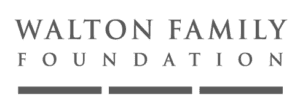A Northwest Arkansas-focused education report card shows area public school students are performing better in the classroom than they did five years ago.
The 2013 Northwest Arkansas Report Card, published by the Office for Education Policy at the University of Arkansas in partnership with the Northwest Arkansas Council, provided several positive results for Northwest Arkansas students.
Among the most encouraging improvements was how students are doing on the Arkansas Benchmark exams over the long term. The report, which shares information about student performance in 17 school districts, showed the average literacy score increased from 69.1 percent in 2007-08 to 81.3 percent in 2012-13. Mathematics scores rose from 73.7 percent to 78 percent in the same five-year period.
“With all of the changes happening in the education world right now – new standards, new tests, more competition – we should all be continually impressed by the progress of Northwest Arkansas schools, as they maintain their excellent standing in the state and across the nation,” said Michael Crouch, school performance evaluator for the Office for Education Policy at the University of Arkansas.
The 16-page Northwest Arkansas Report Card provides information about how students in school districts throughout the region performed on the Arkansas Benchmark exams, as well as on the Iowa Test of Basic Skills and high school end-of-course exams. There’s information about the number of students in each of the school districts, student demographics, teacher demographics, per pupil expenditures, and high school graduation rates.
Additionally, there’s information about Northwest Arkansas colleges and universities that’s focused on such things as financial aid, student retention and the percentage of students who earn college degrees.
“The data presented here are all taken from public sources; anyone could gather this data,” said Gary Ritter, director of the University of Arkansas Office for Education Policy. “The value of this report is that it pulls a great deal of interesting and relevant data into one accessible document and website. Our mission at the OEP is to encourage the use of data and evidence in policy making. In this report, we aim to present these important results to key educational stakeholders: parents, school leaders and community leaders.”
Kim Davis, the Council’s education and workforce director, said being able to tell the story of Northwest Arkansas schools is important to attracting talent to the region. Working professionals, who are interested in jobs with leading Northwest Arkansas companies, want to know about such things as the region’s cost of living, quality of life and school systems, Davis said.
Ritter and Crouch said school performance measures are just one factor parents should consider as they assess Northwest Arkansas schools. For those who want to dig deeper, there’s greater detail in reports compiled by the Office for Education Policy.
The Northwest Arkansas Report Card is one of several education-related initiatives from the Greater Northwest Arkansas Development Strategy being pursued by the Northwest Arkansas Council, its Educational Excellence Work Group and their partners.
Other education-related efforts related to the five-year development strategy include Razor C.O.A.C.H., a program to assist at-risk students in pursuing educational and career opportunities after high school graduation; Graduate NWA, a program to help nontraditional students complete college degrees and technical certifications; Reach Out NWA, a program to encourage high school dropouts to return to the classroom; and the Northwest Arkansas Higher Education Consortium, a mechanism to allow the region’s five colleges and universities to work together on programs of mutual interest.
The Northwest Arkansas Council is a private, nonprofit organization focused on improving the region’s education, infrastructure, community vitality and economic opportunity.























